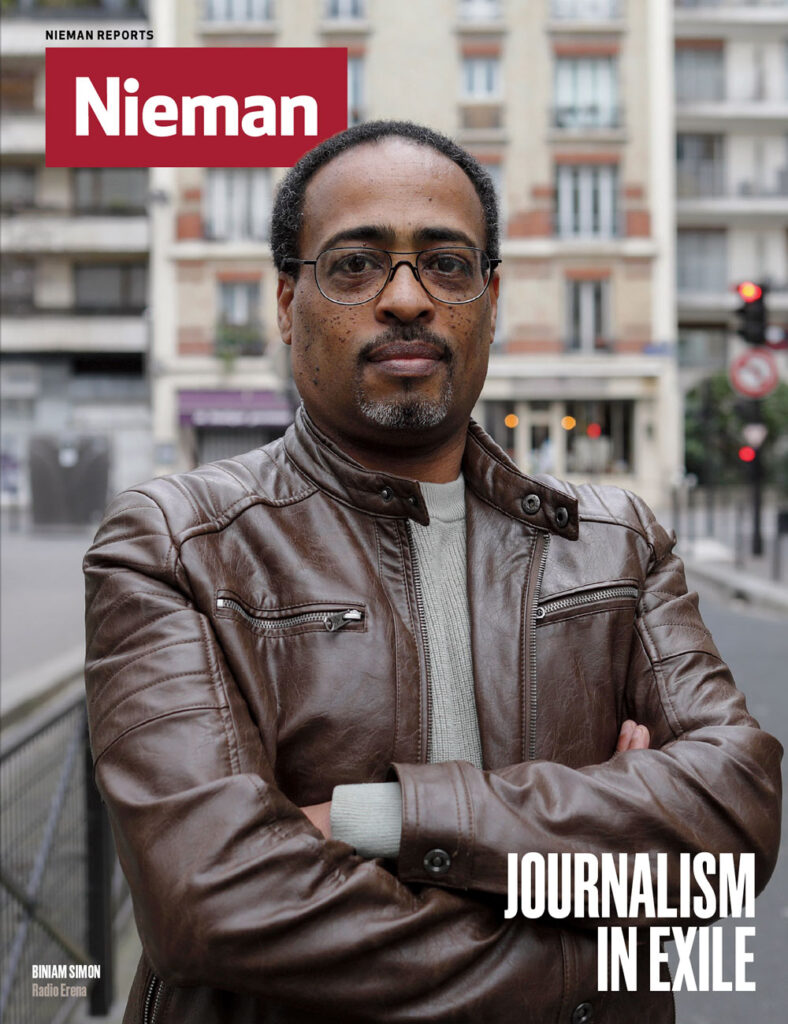For years, many communities have been clamoring — begging — for local news media to provide them with highly relevant news and information that reflects themselves and their interests. When that didn’t happen, those communities began building their own hyperlocal news and information infrastructure.
The recent “The Roadmap for Local News” report urges major donors to support nonprofit startups and other entities producing “civic information,” which the authors describe as information that helps people improve where they live.
There were a few BIPOC people included in the gathering — at Sunnylands, the former Annenberg estate in Rancho Mirage, California — that produced the report, and some BIPOC news outlet founders were included in the report itself. The problem is, they are the same people who already receive funding. Those included also tend to be from similar privileged backgrounds — highly educated, middle class, etc. There are others who deserve a seat at that table as well: HBCU graduates, those with GEDs, folks from rural communities, people the industry might not recognize as professional journalists but who nevertheless are delivering exactly the kind of “civic information” called for in the Sunnylands roadmap.
It's not enough to have Black and Brown people. We also need to have a diversity of lived experiences and thought. This is the same mistake the industry as a whole continues to make and why we continue to see declines in public trust.
Related Posts
Dear Sunnylands: Let’s Widen the Roadmap — and Mark an Achievable Destination for Local News
Legacy Media Needs to Be Transformed, Not Discarded
Meet The States Using Public Funding to Support Local Journalism
Report from Sunnylands: Revitalizing Local News with New Capital, Creativity, and Collective Action
Imagine how much more valuable and exciting the Sunnylands report would have been if voices like Elizabeth Galarza had been included. Elizabeth, a high school dropout with a GED who understood instinctively that her community deserved better regarding quality, credible, and timely news and information, founded Pasa la Voz Savannah.
Pasa la Voz is one of several community newsrooms supported by The Pivot Fund, which I founded and direct. The Pivot Fund identifies, funds, and connects community news outlets to wrap-around services, such as product development and recruiting and hiring people with the right skills to help them become more sustainable. After a gunman killed 19 fourth graders and two teachers at an elementary school in Uvalde, Texas, Pasa la Voz Savannah led coverage about a rumored shooting at a predominantly Hispanic school in coastal Georgia. Pasa la Voz reported the story in real-time and in Spanish, which was critical for panicked parents whose primary language is Spanish. The shooting turned out to be a hoax, but Pasa la Voz served those worried parents with critical news and information that was timely and accessible when other news outlets didn’t.
Imagine how much more valuable and exciting the Sunnylands report would have been if voices like April Ross had been included. Ross, a journalist and HBCU (Historically Black College and University) graduate, started BEE-TV by posting news and information on her Facebook page. She connects rural residents in racially divided Southwest Georgia to critical news and information about Covid-19 and other pressing issues and to each other via a TV station she now owns that reaches 600,000 households on the Spectrum TV Network.
“The Roadmap for Local News” is a conversation starter. The authors say they want other people to join the discussion. For meaningful and real systemic change, journalists like Galarza and Ross must be brought into the conversation. These are the people on the frontline who provide their communities with life-and-death information.
Pasa la Voz and BEE-TV are the kinds of civic newsrooms donors and journalism practitioners gathered at Sunnylands need to discuss. They could have added to the conversation in myriad ways to include what “civic news” means to their communities, their impacts, and needs beyond just capital.
I have been engaged in this work for more than a decade. I wrote about it in a white paper called "The Rise of New Jacks: How They Got Here, Where They Are, And Where They Are Likely To Go Next” for the Gates Foundation in 2018, in which I wrote about MLK50, FlintB, and others. I wrote another paper in 2019 establishing the Racial Equity in Journalism Fund that pointed out that early philanthropic support of journalism was leaving out BIPOC community news outlets. A third paper, titled “Architects of Necessity: Assessing Philanthropic Support for BIPOC News Outlets” based on research I conducted while at Harvard’s Shorenstein Center, looked at the money that had started flowing to these community newsrooms and the impact those dollars are having. That paper will be published this spring by the International Symposium on Online Journalism. I am heartened that people are still grappling with how to best serve the public with critical news and information.
In a country that will be majority people of color by 2044, let’s make sure leaders of media serving BIPOC and LGBTQ communities, especially in rural and other marginalized areas, are seen by journalism philanthropy and always at the table when talking about civic information. Donors need to hear directly from them.
Tracie Powell is the founder of The Pivot Fund and the founding fund manager of the Racial Equity in Journalism Fund. She was a 2021-22 Fellow at The Shorenstein Center on Media, Politics and Public Policy at the Harvard Kennedy School and a 2015-16 JSK Fellow at Stanford. She can be reached at tracie@thepivotfund.org.




